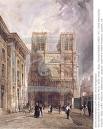Auguste Arthur Beugnot 1797 -1865
July 08, 2009
 Vicomte Auguste Arthur Beugnot 1797 -1865
was a French historian and statesman.
Vicomte Auguste Arthur Beugnot 1797 -1865
was a French historian and statesman.
Beugnot was a patient of Samuel Hahnemann in Paris.
Beugnot was a friend of Francois Pierre Guillaume Guizot, Constance Marie Theis, Princess de Salm Dyck,
The practice Samuel Hahnemann and Melanie Hahnemann established in the heart of Paris soon became fashionable. The wealthy people of the city and, indeed, of Europe generally, were more than ready to try a new medicine…they were predominantly members of the French and British upper and professional classes: nobles, clergy, military officers, doctors… the British were among the earliest visitors: Lord Elgin… Mary Jane, Lady Kinnaird represented Scottish aristocracy… Frederick Hervey Foster Quin… Baron Rothschild… Viscount Beugnot… Countess Musard… Lord Capel… Lady Belfast and Lady Drummond, the Duchess of Melford…’
In 1836, Beugnot complained to Samuel Hahnemann of a weakness of ‘esprit’ from time to time. He had a tendency to vomit, and a burning sensation in his head. He had suffered from tertian fever, rheumatism, and a ‘thousand leeches. Sulphur and lycopodium were prescribed… and Beugnot became a regular homeopathic patient… and his wife the Vicomtesse Beugnot also consulted Samuel Hahnemann for ‘grief’ and for the after effects of the calomel prescribed for her by allopathic doctors after a bout of malaria in Naples, which had badly upset her ‘nerves’.
Auguste Beugnot was a son of Jacques Claude Beugnot. Originally he adopted the profession of advocate, but soon abandoned it in order to devote himself entirely to the study of history, and especially the history of the Crusades.
Beugnot entered politics in 1841 as a Peer of France, was Deputy for Haute Marne in the Chamber of 1849, and under the Second Empire went into a retirement which lasted until his death.
The Villemain educational plan of 1844, to subject the heads of independent institutions to the jurisdiction of the university, and to impose upon their pupils the obligation of making their studies in rhetoric and philosophy in certain prescribed establishments, was opposed by Beugnot on liberal principles, whilst others opposed it on religious grounds.
This project was withdrawn in January, 1845, its author having become demented. Beugnot, who had destroyed the draft of a speech in support of the Villemain programme, was welcomed by the Catholics as a labourer entering the vineyard at the eleventh hour.
In 1845 he advocated the claim of the bishops, as of all other citizens, to the right of petition. In his pamphlet, L’état théologien, he wrote that the attacks on the Jesuits were attempts to destroy liberty of association, and the Jesuits empowered him to treat with Francois Pierre Guillaume Guizot in their name at the time of the negotiations between France and the Holy See in regard to the dispersion of the Society.
As drafter of the Law of 1850 on Liberty of Teaching, he vainly endeavoured to prevent the return of the bill to the Council of State, 7 November, 1849, and in the decisive debate (14 January to 15 March,
- he seconded the efforts of Charles Forbes Rene de Montalembert, Felix Esquirou de Parieu, and Louis Adolphe Thiers which resulted in victory for the Catholics.
He shared with Francois Auguste Marie Mignet the prize of the Académie des Inscriptions (1818) for the best essay on the institutions of St. Louis. The competitions of 1822 and 1831 led to his work on The Jews of the West and his History of the Destruction of Paganism in the West, in consequence of which he was elected to the Académie des Inscriptions in 1832.
The latter of these works was more known at the time; it was placed on the Index. It was largely replaced by Otto Seeck’s treatise on the same subject. Les Juifs d’Occident, ou Recherches sur l’État Civil, le Commerce, et la Littérature des Juifs en France, en Espagne, et en Italie Pendant la Durée du Moyen-Age, (Paris, 1824) is an essay with serious errors, and poor knowledge of ancient Jewish history. He asserts that Julian the Apostate never granted to the Jews permission for the rebuilding of the Temple. The author does not attempt to minimise the persecution of the Jews in the Middle Ages.
He produced editions of the Assizes of Jerusalem (1841-43), of Philippe de Beaumanoir’s book of the Customs of Beauvaisis (1842), and of the Olim, or ancient registers of the Parliament of Paris (1839-48). These editions are of value for the history of feudal and customary law. He was associated with the voluminous publication of the Historians of the Crusades, which began in a memoir written by him in 1834.